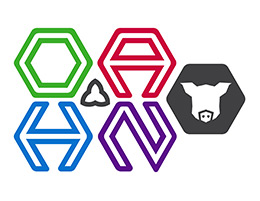Ontario Animal Health Network (OAHN) Swine Network Quarterly Veterinary Report
African Swine Fever Update
The European Union (EU) has seen an increase in the number of ASF cases in the first quarter of 2021 vs 2020. There have been 7429 cases in wild boars in the first quarter of 2021 versus 7144 in 2020. In domestic pigs there have been 526 cases versus 364 in 2020.
- Some countries such as Bulgaria, Lithuania, Poland and Hungary have had fewer cases in wild boars in the first quarter of 2021 while Slovakia saw a jump in wild boar cases from 125 cases in the first half of 2020 to 1194 in the first half of 2021. Part of the reason for the large increase may be because Slovakia was free of ASF until late July 2019. The first cases were found 500 meters from the Hungarian border.
- Poland had no cases of ASF in domestic pigs until March but had 10 cases in March.
Movement of Dogs from China May Pose a Risk to North American Livestock –US based rescue groups are saving dogs from the meat trade in China, bringing them to the US and Canada for re-homing. There is concern that supplies used in transporting these dogs such as kennels and bedding could be a vector for ASF.
Source: Pig333.com July 08, 2021
The Dominican Republic recently reported an outbreak of African Swine Fever. The source of the outbreak has yet to be determined. It is anticipated that an eradication program will be put in place. Updates on the current situation in the Dominican Republic can be found at: https://www.canada.ca/en/food-inspection-agency/news/2021/07/confirmed-finding-of-african-swine-fever-in-the-dominican-republic.html
The continued spread of ASF in Europe and its recent arrival in the Dominican Republic emphasize the ease with which this virus survives in the environment and its ability to traverse oceans. Producers should work closely with their veterinarians to ensure that they are taking all reasonable precautions to avoid introducing new disease to their herds, particularly foreign animal disease that would result in major trade implications for all Canadian producers.
Condemnation Corner
Federal Carcass Condemnation Summary
Carcass Condemnations
Carcass condemnations amounted to 0.21 % of total carcasses that were inspected in Q2 2021. This number has changed very little from the previous two quarters.
- Abscesses continue to be the single greatest reason for carcass condemnations in Q2 2021. ( 28.9 % of condemned carcasses)
- Peritonitis is the second greatest reason for carcass condemnations in Q2 2021. (25.8 % of condemned carcasses) Dr. Pelland noted that the feedback that she has received regarding peritonitis condemnations is that most cases are related to polyserositis and may coincide with clinical disease in production.
- Erysipelas continues to follow seasonal trends similar to those detected in 2019 and 2020. (2.9% of condemned carcasses are due to Erysipelas) In this seasonal trend Q1 and Q4 are showing the highest number of condemns due to Erysipelas and Q2 and Q3 the lowest. Carcass condemnations due to Erysipelas has decreased from 6.6% in Q4 2020.
Trim Demerit Condemnations
- Abscesses continue to be the single greatest reason for trim weight losses in Q2 2021. (71.8 % of trim demerit weight)
- “Other” continues to be the second greatest reason for trim weight losses in Q2 2021. (22.1 % of trim demerit weight)
Ontario Provincial Slaughter Statistic Summary
Dr. Christine Pelland reported there were no significant changes in the provincial statistics.
How can producers engage in OAHN?
- Read our quarterly producer reports and let us know what you think!
- Discuss the material included in these reports with you herd veterinarian and other swine producers. Help us spread the word!
What to do if you see feral pigs in Ontario…
- OMAFRA is working with the Ministry of Natural Resources & Forestry (MNRF) to put together a wild swine strategy for Ontario. The first step will be to try to identify wild swine within Ontario.
- The MNRF has set up a page on iNaturalist at: www.inaturalist. org/projects/ontariowild-pig-reporting for residents to document any possible wild pigs in Ontario. Sighting information can also be emailed to MNRFSpeciesConservationPolicyBranch@ontario.ca.


